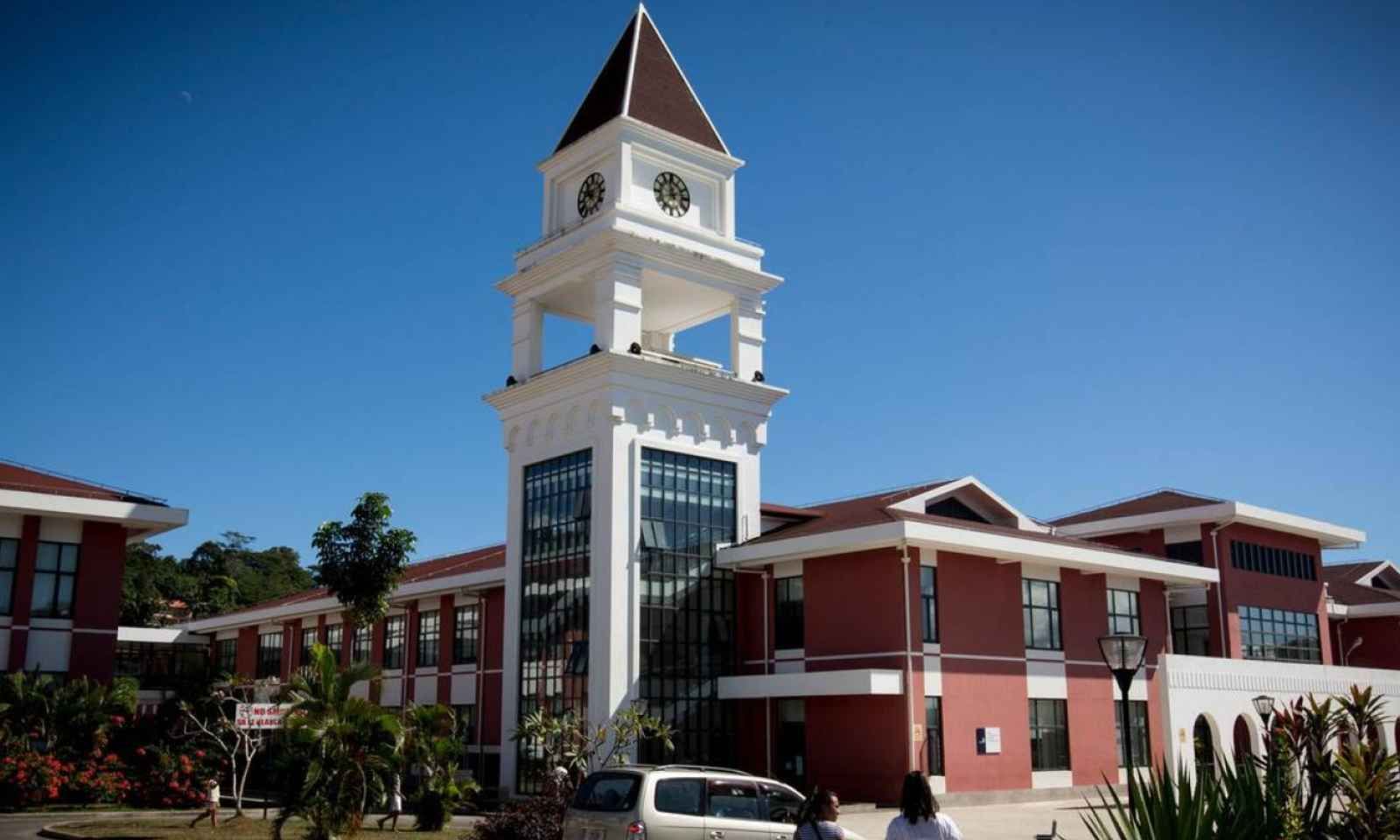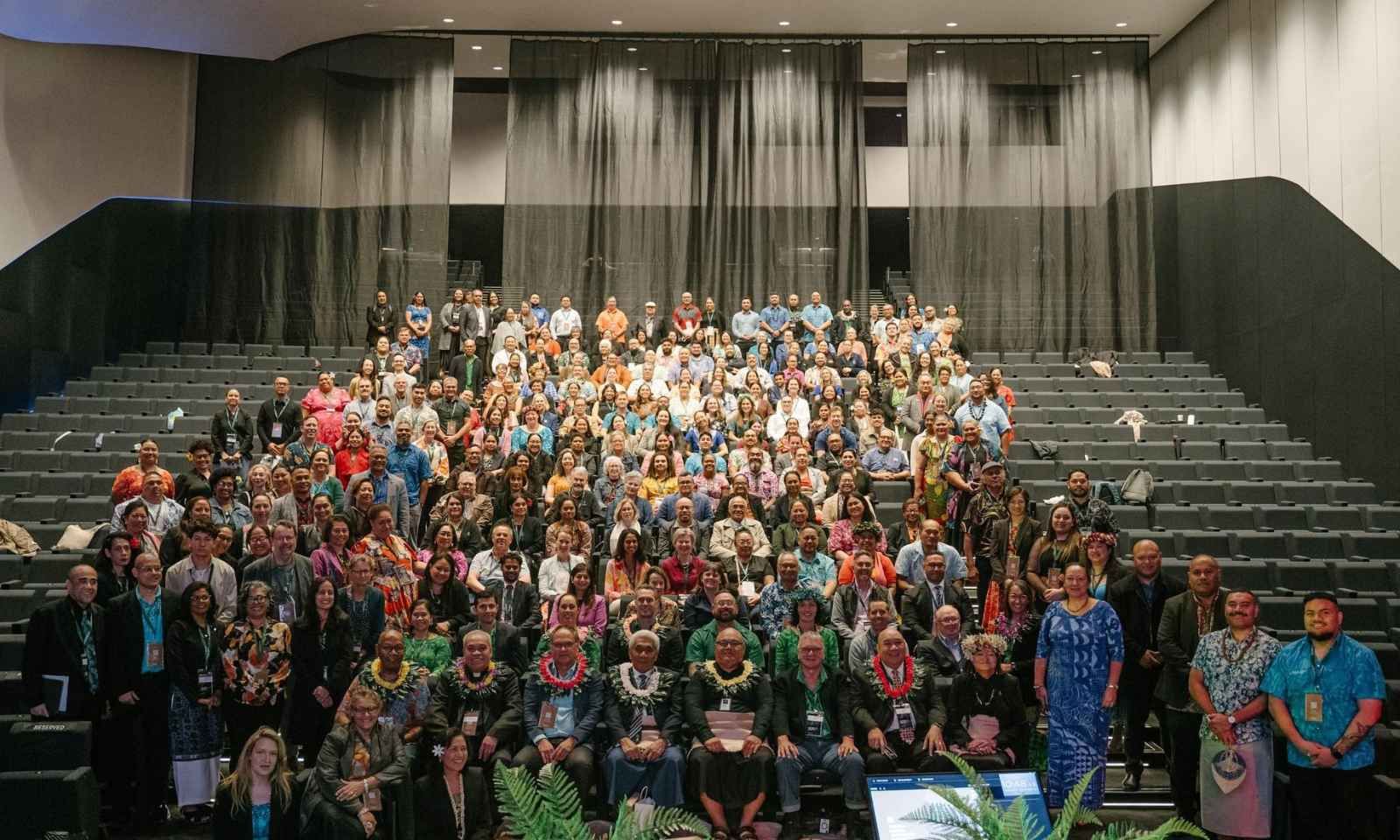

Dr Fatupaito was part of a panel during the PMA conference and all panelists shared similar sentiments, noting the challenges and the need for collaboration to improve child health outcomes across the region.
Photo/ Ala Vailala
More Sāmoans turning to India for affordable medical treatment
Sāmoa is increasingly sending patients to India for life-saving operations, primarily due to significantly lower costs than New Zealand.




Heading off on a roadie? Here’s how to keep your car and whānau safe




Heading off on a roadie? Here’s how to keep your car and whānau safe
Rheumatic heart disease is one of the leading health concerns for children living in Sāmoa.
Dr Farah Fatupaito, the head of Paediatrics at Tupua Tamasese Meaole Hospital in Apia, identifies overcrowded schools and insufficient awareness as contributing factors.
Additionally, many parents often overlook early symptoms, mistaking joint pain for minor injuries, she said.
“The stories that we've been told by the parents are, ‘oh, they have sore joints or he fell’ or they just kind of let go until the child complains or something else.
“And so when they come in, they're pretty sick and they have severe conditions of this disease.”
As a result, when these children finally receive medical attention, they often present with severe conditions that require urgent care.
Late diagnoses can lead to life-threatening complications, which often require expensive surgeries overseas.
Families are increasingly choosing to send patients to India or Fiji rather than New Zealand to avoid high medical expenses.

Dr Fatupaito is the head of Paediatrics at Tupua Tamasese Meaole hospital in Apia. Photo/PMA
“I presented and compared the costs of New Zealand and India and for example, a cardiac lesion, it would cost only 7000 US dollars in India, but I think it's around $15,000 in New Zealand,” Fatupaito said.
“So the cost to have treatment or surgery in India is very cheap. It's okay for the children because the government will pay for the caretaker or the parents [who go]”
To tackle these challenges, Sāmoa has launched the Manu app, a digital health record system designed to improve patient follow-ups.
The previous reliance on paper records often led to lost incomplete information, disrupting consistent care.
“With the app, it’s easy for doctors to access patient information,” Fatupaito said. “If this child didn’t get their penicillin shot, they can actually see that.”
This system is expected to support programmes like rheumatic fever prevention, which include school screenings and monthly penicillin injections.
The recent case of whooping cough in Sāmoa involving a seven-month-old infant highlights the critical importance of immunisation.
However, vaccine hesitancy remains an issue, stemming from past events.
Despite this, Fatupaito remains optimistic.

The Pasifika Medical Association's conference wrapped up on Wednesday in Christchurch. Photo/PMA
She highlights the syndromic surveillance system established after the Covid-19 pandemic, which enables health authorities to contain outbreaks quickly.
“We are very aware and diligent about these kinds of things so that we can control them,” she says, drawing lessons from past epidemics like measles.
Building public trust within Sāmoa is also a key priority.
Fatupaito explained how complications during a past cardiac mission negatively impacted community confidence in local surgeries.
“The second time around when they [the cardiac mission] came in, I think they left quite early. After the operation, nobody stayed to actually monitor some of these cases.
“And so when they left, these cases had complications that were quite severe. And so a few of them died. And that was a shock for our people.
“It was hard to tell them that this surgery is going to make them better and then it ended up that way and now people are scared.
“Heart surgeries are not easy operations so it will take time to regain that trust that they could be okay after the surgery back home.
“But at the same time, you've got to look at the infrastructure and the resources. Do we have all that to have a lot of surgeries?”
Fatupaito recognises that heart surgeries are complex procedures and says that regaining public trust will take time.
She says by training young doctors and encouraging them to return home, Sāmoa can reduce its reliance on foreign healthcare systems.
“We try our best with the limited resources that we have and we try to get our doctors to go and train so they can come back home and help our people rather than stay where they are trained.
“And I think it's gonna be a good future for our younger doctors who are enthusiastic about making a better place and a better outcome for our people.”
Listen to Dr Fatupaito's full interview here